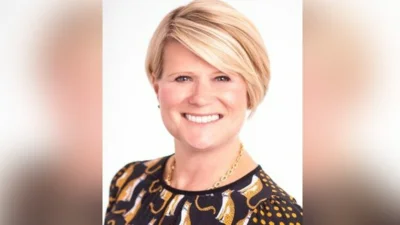Wake Forest Baptist Health issued the following announcement on October 8.
Following the Affordable Care Act (ACA) Medicaid expansion, access to bariatric surgery as a treatment for obesity increased by 31% annually for lower-income Medicaid-covered and uninsured white adults age 26 to 64 but not for Hispanic and Black adults, according to research conducted by scientists at Wake Forest School of Medicine.
The National Institutes of Health-funded policy impact study is published in the Oct. 8 edition of JAMA Health Forum.
“As the number of adults with severe obesity continues to grow in the United States, bariatric surgery is the most effective treatment available,” said the study’s lead author Amresh D. Hanchate, Ph.D., professor of public health sciences at Wake Forest School of Medicine.
“The rapid increase and high rate of obesity in the United States, particularly among populations with low incomes and who are underserved, has exacerbated disease burden, low quality of life, premature death and healthcare costs. As an elective procedure primarily for people younger than 65, bariatric surgery is a marker of healthcare access to both primary and specialist clinicians.”
Besides improving quality of life and conditions associated with obesity such as diabetes, hypertension and sleep apnea, several studies have shown that bariatric surgery may also result in net savings of healthcare costs over a lifetime, Hanchate added.
The objective of the study was to examine the association between Medicaid expansion and the rate of inpatient elective bariatric surgery among lower-income individuals age 26 to 64. Researchers analyzed data from 637,557 bariatric surgeries from 2010 to 2017 from 11 states that expanded Medicaid and 6 states that did not.
The researchers, including Kristina Henderson Lewis, M.D., associate professor of public health sciences at Wake Forest School of Medicine, found that over the four years after expansion (2014-2017), use of bariatric surgery went up 31% each year among whites with Medicaid coverage or who were uninsured, but there was not a significant change in bariatric surgeries among non-Hispanic Black and Hispanic individuals.
The study showed that before the ACA’s Medicaid expansion, lack of insurance may have been a major barrier for many lower-income patients eligible for bariatric surgery. However, insurance alone, while a necessary step toward improving bariatric surgery access, was not sufficient for Black and Hispanic patients in the study.
Hanchate said additional research is needed to pinpoint reasons behind this disparity. For these populations, there may be other barriers to bariatric surgery that still need to be removed, he said.
Future studies could examine, for example, whether lower-income Hispanic and Black patients are less likely to be referred by their primary care physicians for surgical evaluation or more likely to be excluded during the pre-approval process.
“There are almost certainly other structural barriers facing minority patients, including ongoing racism and discrimination,” Hanchate said.
Funding for the study was provided by the National Institute on Minority Health and Health Disparities R01MD011594.
Original source can be found here.



 Alerts Sign-up
Alerts Sign-up